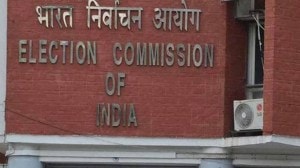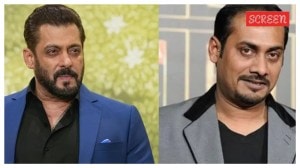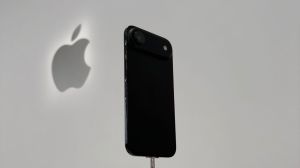Yes to Airbus is PM signal to Chirac before Paris landing
When Prime Minister Manmohan Singh himself announced today the government’s decision to buy 43 Airbus aircraft for the Indian Airlines,...

When Prime Minister Manmohan Singh himself announced today the government’s decision to buy 43 Airbus aircraft for the Indian Airlines, he was only partly addressing the British Prime Minister Tony Blair standing next to him.
Singh’s message was in fact directed at French President Jacques Chirac. Although Britain is part of the European consortium that builds the Airbus, France will get the lion’s share of the deal.
The rush to finalise the long overdue Airbus deal was shaped by the diplomatic imperative to clear the air before Singh lands in Paris this Sunday for talks with Chirac next week.
The Airbus deal, the government hopes, will convince the French of the political will in New Delhi to develop a long-term strategic partnership with Paris.
Last week, National Security Advisor M K Narayanan was in Paris to reassure the French on India’s enduring political commitment to expanding ties with Paris.
Narayanan was also seeking the much-needed French support in the Nuclear Suppliers Group to amend the international rules on civilian nuclear cooperation with India, after Singh’s historic nuclear deal with the US in July.
However, words were no longer enough to convince Paris that India was not abandoning the French connection in favour of a new American liaison. India’s repeated promises to France in recent years were not implemented. New Delhi now had to act signal its seriousness about engaging Paris; hence the timing of the Airbus decision.
The French did not hesitate to demonstrate their disappointment at the Indian decision to purchase Boeing aircraft for Air India earlier this year. However, India’s new troubles with France go well beyond the usual dogfight between Airbus and Boeing. They are rooted in the suspicion in Paris that India, which turned to France at the moment of its greatest need, was now downgrading it in its strategic pecking order.
While pressing Paris not to sell arms to Islamabad, Delhi seemed cavalier in its decision-making on defence cooperation with France. Beyond the usual snail’s pace, the decision by the Indian establishment to raise new questions on the Scorpene submarine deal after it was clinched for all practical purposes seemed to confirm the worst fears in Paris.
In the aftermath of the nuclear tests in May 1998, it was Paris that provided the much needed diplomatic cover for India as the Clinton Administration frowned upon India.
While Paris could not stop the US and China from drafting a tough resolution against India by the five permanent members of the United Nations Security Council, it prevented the European Union and the Group of Eight industrialised countries from following the lead of US and Japan in imposing nuclear sanctions against India.
France, along with Russia, also took the initiative to lobby the Nuclear Suppliers Group to consider making nuclear exemptions for India. While that process needed American support, which has now emerged, India would not want to forget the positive French record. The Airbus decision should now free Singh to explore a broader vision for nuclear and strategic cooperation with France, which should go beyond the mere sale of aircraft, submarines, and nuclear reactors.
Photos



- 01
- 02
- 03
- 04
- 05



























